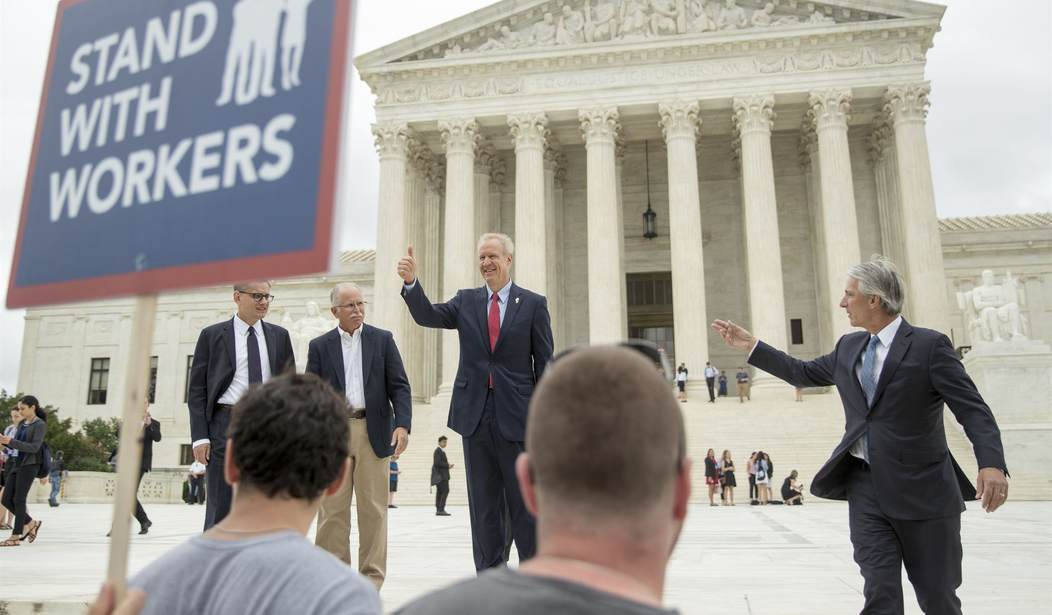Unions have certainly been in the news this past year. They loomed large in discussions about the prudency of reopening schools for the nation’s children – with many states and localities ultimately caving to the unions’ desire to keep them closed. They played an outsized role in the closure of businesses who could not afford to pay the wages unions demanded amidst the pandemic. It appears Congress will once again make them the focus of national attention with its consideration of the Protecting the Right to Organize (PRO) Act. And if President Biden’s first joint address to Congress is any indication, the Biden administration will push hard for this flawed piece of legislation.
Introduced by Rep. Bobby Scott (D-Va.), the PRO Act is essentially a legislative give away for major unions across the country. While a nearly identical version was taken up by Congress last year, it was unable to pass with a Republican-controlled Senate and White House. However, with control of leadership in both chambers of Congress and the presidency, Democrats are hoping they can usher the PRO Act into law in 2021. This would spell disaster for the nation and the economy.
The PRO Act would undermine the “right-to-work” laws in the 28 states by dictating employment terms to workers instead of allowing them freedom of choice. Right-to-work laws guarantee that employees in jobs that are subject to union contracts cannot be forced to join the union or pay dues to them. This right was upheld in the recent landmark Supreme Court case, Janus v. AFSCME. These judicially protected protections allow workers greater freedom of association and protect taxpayer dollars from being used to fund unions that employees don’t wish to be a part of.
The PRO Act would nullify these laws, violating workers’ right to free association – and running roughshod over state governments’ Tenth Amendment rights to implement these laws that have been upheld at the highest levels of the judiciary. By eliminating right-to-work laws, the PRO Act would help unions form and build their membership with thousands (if not millions) of new, unwitting, dues paying members. It is no small wonder why union bosses are making passage of the PRO Act their top priority this year. It will fill their coffers with millions of dollars in new, forced dues.
Recommended
Another blow struck to the rights of workers and the well-being of small businesses is the way the PRO Act addresses independent contractors. The bill applies a three-pronged test to determine whether a worker is an employee or a contractor. A worker can only be considered an independent contractor if all three of the following conditions are met:
• They are free from direct control from the hiring entity.
• They perform work that is outside the normal course of the hiring entity’s business.
• They are customarily engaged in independent business of the same nature as the work they perform for their hiring entity.
With these qualifications, it would be nearly impossible to qualify as an independent contractor. There’s no need to speculate either on these provisions’ ramifications. California passed similar legislation in its Assembly Bill 5 (AB 5) to the detriment of contractors across the Golden State. Companies cannot afford to hire many workers because they would have to be classified as employees, which is far more expensive. Thus, many workers – especially students – cannot get that supplementary income or experience they might need because AB 5 has made it too prohibitive to hire them. The PRO Act exports California’s failure to every corner of the nation.
As if the aforementioned provisions were not enough to oppose the PRO Act, the legislation would also amount to a massive violation of privacy rights, by mandating that employers share their employees’ private information with the union bosses. It then imposes almost no limitations on what those bosses may then do with that information. The running theme of the PRO Act is to make workers subservient to unions in every way, shape, and form.
Millions of small businesses across the country have struggled throughout the pandemic. Instead of trying to get out of their way to let them succeed and rebuild, Congress is working overtime to ensure they are under the thumb of unions, who have remained steadily immune from the effects of the events of the last year. The PRO Act will do nothing to help workers and businesses. Perhaps that was never the point.
Daniel Savickas is a policy analyst for the Taxpayers Protection Alliance.
























Join the conversation as a VIP Member